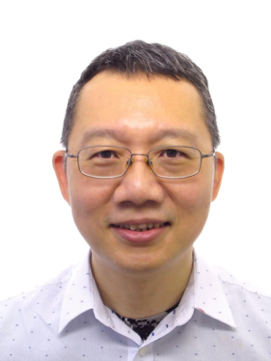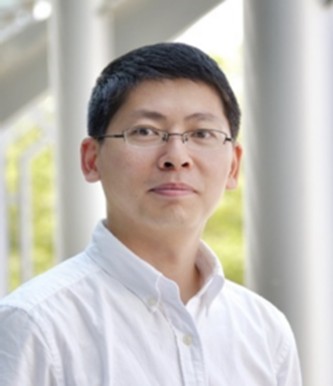
Dr. Yusen Eason Lin, Founder & CEO, Wellgen Medical, Co., LTD. Taiwan
Biography
Dr. Eason Lin is the founder of Wellgen Medical and a full professor at National Kaohsiung Normal University, TAIWAN. He was a research assistant professor at the Department of Medicine (2000 ~ 2001), a visiting professor at the University of Pittsburgh (2013 ~ 2016), and a Visiting Scholar at the School of Public Health, UC Berkeley (2022). His professional expertise is in AI/machine learning in medical image processing, medical device design, and commercialization. Dr. Lin was awarded as “Extinguished Researcher Award” by the National Science and Technology Council and the “Young International Affair Advocate” by Executive Yuan, Taiwan. Dr. Lin has served as an expert consultant at the Taiwan CDC, the Taiwan Accreditation Foundation, and numerous healthcare organizations. Dr. Lin can be reached at easonlin@nknu.edu.tw or www.linkedin.com/in/eason-lin-tw.
Research, Clinical, and Business Challenges of AI and Machine Learning Applications in Medicine - A Case Study in Metastatic Cancer and Infectious Diseases Detections by Microscopic Imaging
Abstract
Integrating Artificial Intelligence and Machine Learning in medical diagnostics presents transformative opportunities, particularly in detecting metastatic cancer and infectious diseases. However, significant challenges impede widespread adoption and effective implementation. This talk examines four critical barriers: data imbalance, data overfitting, data sharing insecurity, and user-payer misalignment in healthcare AI applications. We explore how data imbalance and overfitting compromise model generalization across diverse patient populations and propose solutions through advanced validation techniques and synthetic data generation. The presentation addresses the concerns of medical data security and sharing. Finally, we analyze the economic challenges of AI implementation in healthcare settings, where end-users often differ from payment stakeholders. Practical solutions, including value-based pricing models and tiered service structures, are discussed. This comprehensive analysis provides a roadmap for healthcare institutions, researchers, startups, and industry partners to navigate the complex landscape of medical AI implementation.

Dr. Hao Wu, Chief-Executive-Officer (CEO) of Shenzhen Ninenovo Technology and RingConn LLC, China
Biography
Hao Wu (Member, IEEE) received the B.Sc. degree from the Nanjing University of Posts and Telecommunications, China, in 2013, and the M.Sc. and Ph.D. degrees from The University of Hong Kong, Hong Kong, in 2014 and 2018, respectively. From 2018 to 2019, he was a Research Fellow with Tencent, Shenzhen, China. From 2019 to 2024, he was an Assistant Professor with the College of Electronics and Information Engineering, Shenzhen University, China. He is currently the Chief-Executive-Officer (CEO) of Shenzhen Ninenovo Technology and RingConn LLC. His research interests include computational intelligence, machine learning, signal processing, and their applications on intelligent transportation, biomedical engineering, and medial image analysis. He has published over ten articles in his research area.
Smart Rings: Pioneering Biomedical Technologies for Transformative Healthcare Applications
Abstract
Over the past decade, smart wearables like smart watches and fitness bands have been
developed and widely used for health monitoring, including tracking steps, heart rate,
and blood oxygen levels. These devices utilize advancements in sensor technology and
data analytics to deliver real-time health insights, making personal health tracking
more accessible and efficient. However, smartwatches are primarily used for commercial
health monitoring rather than in clinical healthcare or medical applications due to
several limitations: they are uncomfortable to wear at night, lack comprehensive medical
diagnostic capabilities, and offer limited healthcare services.
With ongoing advancements in sensor and electronics miniaturization, new wearables like
smart rings are emerging, providing more compact and specialized health monitoring
solutions. RingConn, a global leader in smart wearables, has released two generations of
smart rings, serving over 100,000 customers worldwide. Notably, the RingConn Gen 2 is
the first smart ring to feature sleep apnea monitoring, and its cutting-edge
technological specifications set a new standard in the smart ring market.
In this workshop, Dr. Tony Wu, Co-Founder and CEO of RingConn, will showcase how
RingConn integrates pioneering biomedical technologies into its smart rings. He will
also discuss the company’s long-term vision for expanding healthcare applications and
services.

Dr. Jianquan Liu, Director & Senior Principal Researcher, NEC Corporation, Japan
Biography
Jianquan Liu is currently the Director and Head of Video Insights Discovery Research Group at the Visual Intelligence Research Laboratories of NEC Corporation, working on the topics of multimedia data processing. He is also a Visiting Professor at Nagoya University and an Adjunct Professor at Hosei University, Japan. Prior to NEC, he was a development engineer in Tencent Inc. from 2005 to 2006, and was a visiting researcher at the Chinese University of Hong Kong in 2010. His research interests include high-dimensional similarity search, multimedia databases, web data mining and information retrieval, cloud storage and computing, and social network analysis. He has published 70+ papers at major international/domestic conferences and journals, received 30+ international/domestic awards, and filed 70+ PCT patents. He also successfully transformed these technological contributions into commercial products in the industry. Currently, he is/was serving as the Industry Co-chair of IEEE ICIP 2023, 2025 and ACM MM 2023, 2024; the General Co-chair of IEEE MIPR 2021; the PC Co-chair of IEEE IRI 2022, ICME 2020, AIVR 2019, BigMM 2019, ISM 2018, ICSC 2018, ISM 2017, ICSC 2017, IRC 2017, and BigMM 2016; the Workshop Co-chair of IEEE AKIE 2018 and ICSC 2016; the Demo Co-chair of IEEE MIPR 2019 and MIPR 2018. He is a senior member of ACM and IEEE, and a member of IEICE, IPSJ, APSIPA and the Database Society of Japan (DBSJ), a member of expert committee for IEICE Mathematical Systems Science and its Applications (2017-), and IEICE Data Engineering (2015-2021), and an associate editor of IEEE TMM (2023-), ACM TOMM (2022-), EURASIP JIVP (2023-), IEEE MultiMedia Magazine (2019-2022), ITE Transaction on Media Technology and Applications (2021-), APSIPA Transactions on Signal and Information Processing (2022-), and the Journal of Information Processing (2017-2021). Dr. Liu received the M.E. and Ph.D. degrees from the University of Tsukuba, Japan.
An Industry Perspective: Video Analytics meets Generative AI
Abstract
In this talk, Dr. Jianquan Liu presents an industry perspective on the convergence of video analytics and generative AI. The talk begins with an overview of video analytics, covering advancements in action recognition, object tracking, human-object interactions, scene recognition, and behavioral pattern analysis. These technologies enable efficient extraction, retrieval, visualization, and summarization of video content. The presentation then explores the impact of generative AI, particularly large language models (LLMs), on video understanding. It discusses how LLMs enhance object recognition, semantic segmentation, action recognition, captioning, visual question answering, and storytelling. Dr. Liu provides industry case studies to illustrate these applications while also addressing limitations and challenges. The talk introduces NEC's narrative summarization framework, designed to tackle key challenges in video analytics. It concludes with a demonstration of "Video with LLM" technology, showcasing its practical application in automating traffic accident investigation reports. This presentation offers valuable insights into the current state and future potential of AI-driven video intelligence, bridging the gap between technical innovation and practical application for both industry professionals and general audiences.